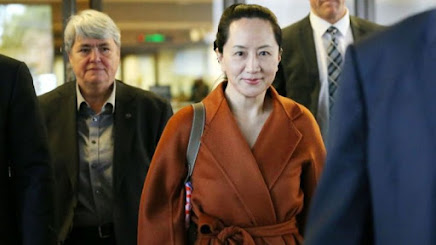Mohsen Fakhrizada: What could be the reasons behind the assassination of the Iranian nuclear scientist?
Most Iranians would not have heard of nuclear scientist Mohsen Fakhrizada until Friday when he was killed in an attack.
But Mohsen's name was not new to those watching Iran's nuclear program, and Western intelligence agencies considered him a key figure.
 |
| Following the death of Iranian nuclear scientist Mohsen Fakhrizada, while Iran is now vowing to respond, questions are being raised as to why the assassination was possible. |
Iranian media did not exaggerate Fakhrizada's importance, saying he was a scientist and had been researching in recent weeks to create "Code 19 Testing Kits in the country."
Mark Fitzpatrick, an associate fellow at the International Institute for Strategic Studies in London who has a close eye on Iran's nuclear program, also tweeted: Iran's nuclear program has now gone far beyond the point where it depends on a single individual.
Two possible motives are most likely to be considered: first, to jeopardize the possible improvement of relations between Iran and the new US administration under Joe Biden, and second, to provoke Iran to react.
Iranian President Hassan Rouhani said in his first statement on the assassination: "The enemy has been going through weeks full of tension."
"They know the global situation is changing and they want to make the most of these days to destabilize the region."
When Hassan Rouhani refers to Iran's "enemies", he is clearly talking about the Trump administration, Israel, and Saudi Arabia.
Both Israel and Saudi Arabia are concerned about the changing tide of politics in the Middle East and the impact of Biden's inauguration on regional politics.
Joe Biden made it clear during the election campaign that he wanted to rejoin the nuclear deal with Iran, which was reached after negotiations under Barack Obama in 2015, and President Donald Trump called on the United States to do so in 2018. The agreement was withdrawn.
According to Israeli media, Israeli and Saudi Arabia's concerns about Iran were discussed during an alleged "secret meeting" between Israeli Prime Minister Benjamin Netanyahu and Saudi Crown Prince Mohammed bin Salman in New York last Sunday.
The Saudi foreign minister has denied any such meeting.
According to reports, Netanyahu could not convince the Crown Prince to establish diplomatic relations between the two countries.
On Monday, when pro-Iranian Houthi rebels in Yemen attacked a Saudi oil company Aramco in Jeddah, near the Red Sea, it could be an opportunity to criticize Saudi Arabia.
The hardline press in Iran spoke proudly about the "bold Quds 2 ballistic missile attack" by the Houthis.
According to Mehr News Agency, "This was a strategic move that was timed to coincide with the Saudi-Israeli meeting to send a message to the Saudis not to act without thinking."
The Americans also appeared to be involved in the Saudi anger over the attack.
John Bolton, a former US national security adviser, described in his book The Room Wear at Happiness how the Trump administration viewed Iran's support for the Houthis as a "campaign against US interests in the Middle East."
The alleged meeting in New York was reportedly arranged by US Secretary of State Mike Pompeo, who recently visited Qatar and the United Arab Emirates, where Iran was the main topic of discussion.
According to US media, two weeks ago, President Trump asked his senior advisers if they had the option of a military strike on Iran's main nuclear site.
Apparently, he wanted to fight Iran even as he was leaving.
In January, President Trump took pride in killing General Qasim Soleimani, Iran's top military commander in Iraq, in a drone strike that was later declared "illegal" by the UN special envoy.
"We stopped them immediately on my instructions," he said.
Therefore, it can be said that these assassination attempts are not strongly opposed by the President.
His Iranian counterpart has blamed Israel for Fakhrzada's death.
And in fact, according to many reports, Israeli Prime Minister Netanyahu was one of the few world leaders to speak directly about the scientist.
During a TV presentation in 2018, he spoke of Fakhrizada's leading role in Iran's nuclear program and urged people to "remember this name."
And while Israel knows that under Biden's presidency, the United States will ensure Israel's security, it is also concerned that Biden's nominee for Secretary of State, Anthony Blanken, is a strong supporter of a nuclear deal with Iran.
Blanken's strategy for the Middle East could also open up more opportunities for the Palestinians. He was opposed to President Trump moving the US embassy from Tel Aviv to Jerusalem, but Biden said he would not back down.
Iran's Supreme Leader Ayatollah Ali Khamenei has vowed: "certain punishment" for those responsible for Fakhrizada's death.
And Mohsen Rezaei, head of Iran's expediency council, pointed to security and intelligence failures.
He said Iranian intelligence agencies must track down assassins by tracking down intruders and foreign spies.
On social media, many Iranians are raising the question of how anyone with such tight security can be killed in broad daylight, despite Iran's claims of military and intelligence superiority.
There are also concerns that more arrests will be made in the country based on the killings.
As President Trump's administration nears completion, Israel and Saudi Arabia are losing their main ally. Iran is looking at the possibility of easing sanctions by the Biden administration and rebuilding its economy. So it would be foolish to retaliate.
Dr. Masooma Torfa is a Research Associate at the London School of Economics and the School of Oriental and African Studies. She specializes in the politics of Iran, Afghanistan, and Central Asia. She has previously served as the United Nations Director of Strategic Communications in Afghanistan.



Comments
Post a Comment